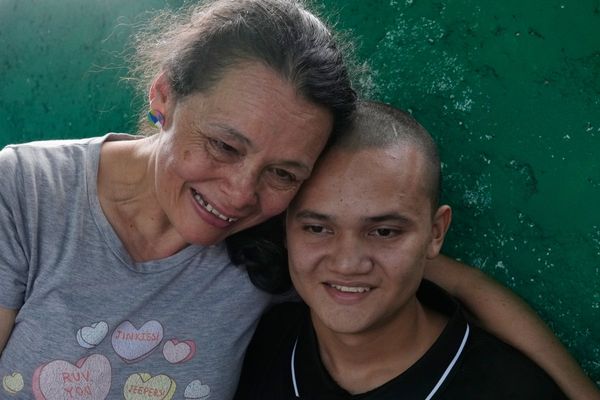
Sydney McLaughlin-Levrone ran the fastest women’s 400 metres in 40 years to claim world championship gold in 47.78sec on Thursday and complete her transition from the one-lap hurdles in emphatic style. The American stormed through the Tokyo rain to add a first global gold in the flat 400m to the two Olympic and one world titles she won over the hurdles.
Not since the Iron Curtain cast a shadow over Europe, and sport was seen as war by other means across the Eastern bloc, has a woman run a 400m as fast as McLaughlin-Levrone did on this wet and wild Tokyo night.
The wind was rattling unevenly around the National Stadium. There were puddles on the track. And yet the American looked almost serene as she floated across the track to take a stunning World Athletics Championship gold medal in 47.78sec.
Afterwards, when she spoke briefly to reporters, she invoked the power of prayer and the Lord. In track and field terms, this performance was certainly God-like too.
“I had faith in my training,” she said. “I knew I had it in me to run that fast. It was just a matter of time.”
Yet when McLaughlin-Levrone announced she was making the switch to the 400m from the hurdles, where she holds the world record and two Olympic and world titles, there were plenty of doubters. They will be silent now. “My coach, Bobby Kersee, uses boxing terms all the time,” she said. “He said: ‘You got to go out there and take the belt. It’s not yours, and you got to go earn it’.”
McLaughlin-Levrone’s time was so fast it took her to second on the all-time list, hopping over the Czech Jarmila Kratochvilova, who attributed her muscular physique to growing up on a farm, rigorous weight-training, and shots of vitamin B12, during her early 1980s peak.
Only Marita Koch’s world record of 47.60sec, set by the East German in 1985 and questioned ever since despite the athlete’s insistence she did nothing wrong, stands above the US athlete now. But McLaughlin-Levrone knows it is within her grasp.
Certainly Salwa Eid Naser, who won bronze, thinks it is possible after getting the best view in the National Stadium of the American’s performance. “I think that very soon the women’s 400m world record will be broken,” she said. “I never thought of it before, but after tonight’s race I can see it is around the corner.”
Yet, incredibly, the result was still in doubt off the final bend. As McLaughlin-Levrone looked across from lane five she could see the Olympic champion, Marileidy Paulino, alongside her, across in the outside lane.
Some would have panicked. But the American’s form didn’t change and her poise didn’t alter. Slowly Paulino began to falter and settle for silver in 47.98sec, the third fastest time in history, with Eid third in 48.19sec, the ninth quickest of all time. Britain’s Amber Anning ran a season’s best of 49.36sec to finish a highly creditable fifth.
“I knew the strength was there,” said McLaughlin-Levrone. “I just knew that there was more in the tank. And I knew it was going to be a battle down the full stretch. It was a lot of hard work, a lot of prayer, a lot of trust in the process.”
Elsewhere on the sixth night of action, Trinidad & Tobago’s Keshorn Walcott won his second global title in the men’s javelin, 13 years after his first at the London 2012 Olympics.
The 21-year-old Busang Collen Kebinatshipi announced himself on the global stage by winning the men’s 400m title in 43.53sec, with compatriot Bayapo Ndori taking bronze on a memorable night for Botswana. Jereem Richards took silver.
There was also gold for Cuba’s Leyanis Pérez Hernández in the women’s triple jump after a leap of 14.94m.
But this night was all about McLaughlin-Levrone. There may be even greater challenges and peaks ahead, after she dangled the prospect of doing both events at the Los Angeles Olympics afterwards.
“We will need to talk about the schedule for the LA 2028 Games,” she said. “Maybe I could do both the 400m and 400m hurdles. But I would need some days off between those events and there is a tough field in both events.”
Asked for her final verdict on this night, she smiled. “I think it shows that anything really is possible,” she said. “But I don’t have any more words for you guys right now. I’m still trying to process all of it.”Who could blame her? Anyway, who needs words when you do your talking on the track?







